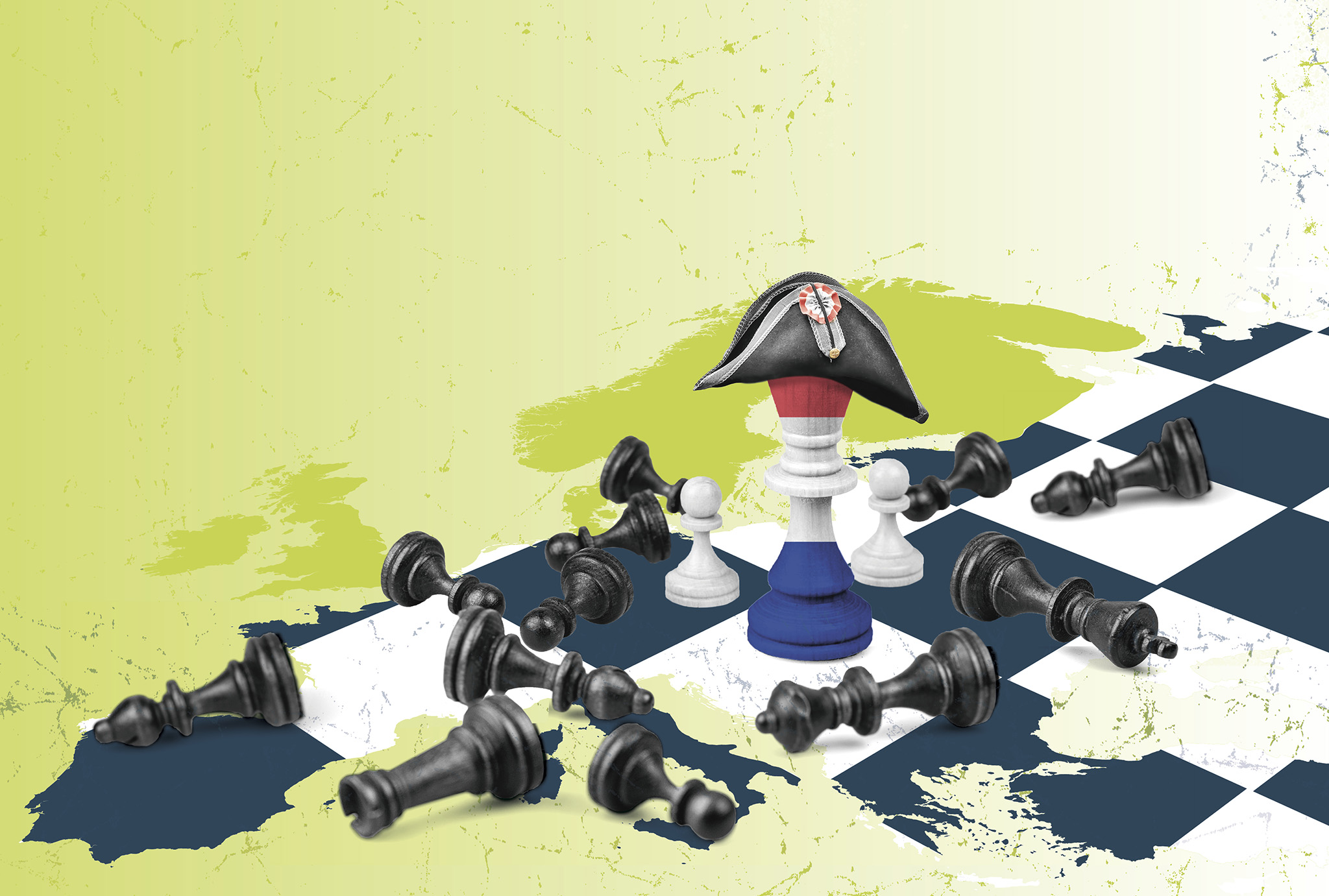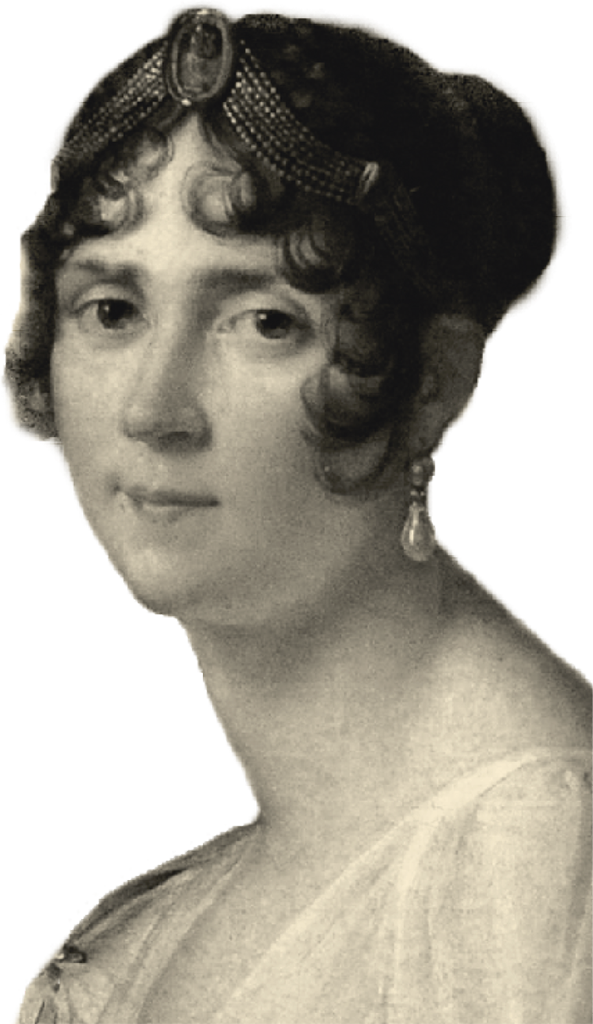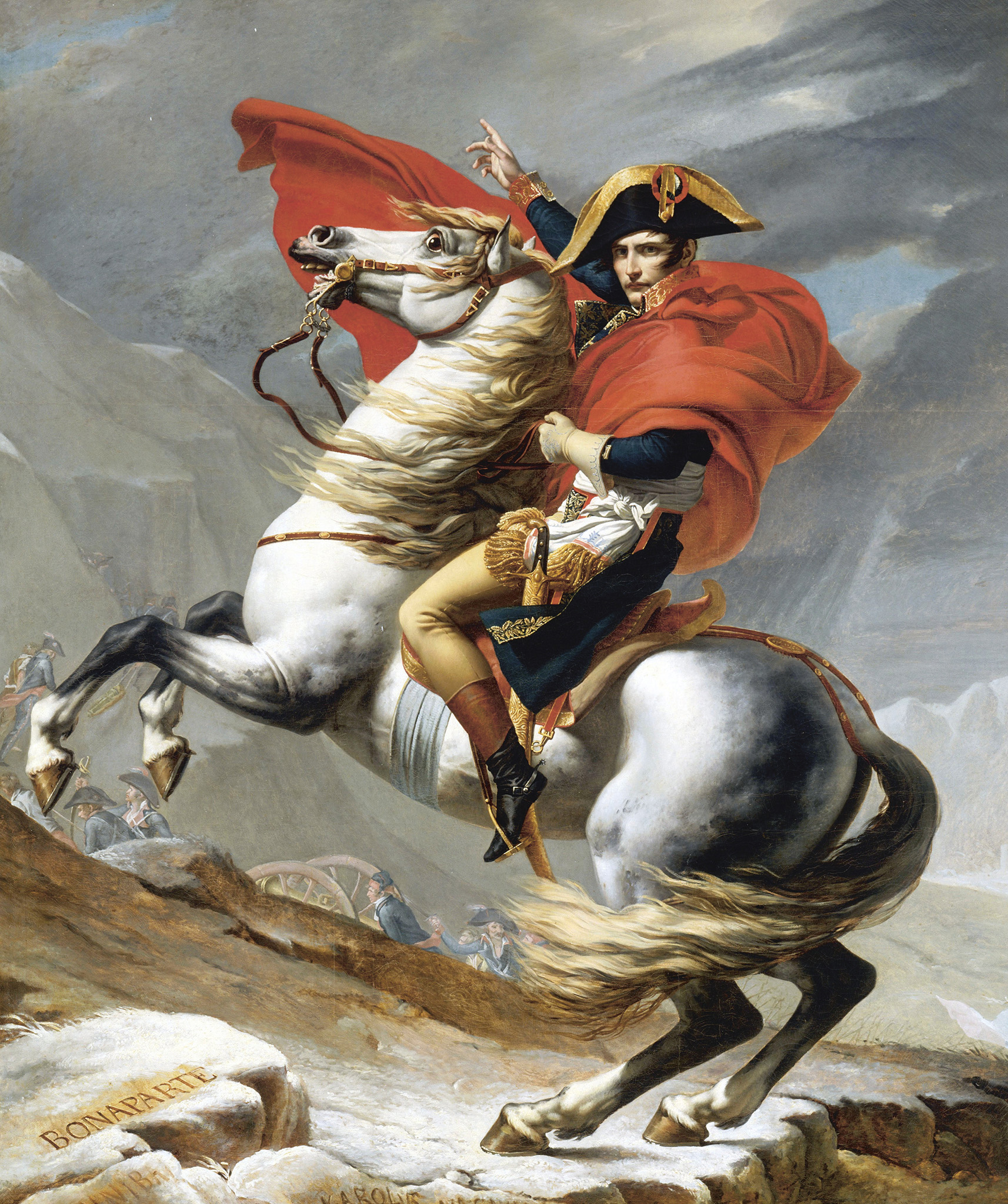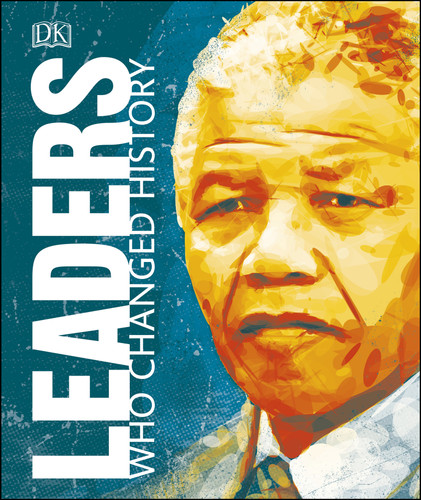
NAPOLEON BONAPARTE
1769–1821
With his political brilliance and military prowess, Napoleon Bonaparte elevated himself to the position of French emperor. Over 22 years, he won more than 50 conflicts – no other leader triumphed in so many battles in such a short time.
The future emperor of France was born “Napoleone di Buonaparte” in Ajaccio, on the island of Corsica. Napoleon’s parents were poor Corsican noblemen of Italian origin, and while he learned French as a child, he never lost his native accent. He was sent to military school in Brienne-le-Château, France, aged 10, then attended the Royal Military School in Paris, where he completed a two-year course in just 12 months. At 16, Napoleon was commissioned as a sublieutenant in the artillery in 1785. After achieving the rank of captain in 1792, he returned to Corsica.
The following year, during the French Revolution, Napoleon and his family were forced to leave nationalist-leaning Corsica because of their pro-French views. Back in France, Napoleon seized every opportunity to fight for Robespierre’s revolutionary government and crush royalist uprisings. In the same year he returned to the mainland, Napoleon was promoted to brigadier general aged 24. He survived the government’s downfall in 1794, and its political successors, the Directory, gave him command of the Army of Italy (an army stationed at the French-Italian border) in 1796. Napoleon led his forces to spectacular victories over Austria and Piedmont (northern Italy) and defeated the Papal Army, which made him a French hero. In 1798, he invaded Egypt to further French interests in the Middle East, and established trade links with India to compete with those of Britain.

Napoleon captured many Russian officers during the Battle of Austerlitz in 1805, which is widely considered to be one of his greatest victories.
Reshaping France
Napoleon was inspired by a sense of destiny, and he desired supreme power. In 1799, he overthrew the Directory in a coup and set up a new government, the Consulate, with himself as First Consul. He then went on to crown himself emperor in 1804.
As head of state, Napoleon rewrote the French Constitution to include the Napoleonic Code, which forbade privilege based on class, allowed religious freedom, and stated that government jobs must be given to the best-qualified people.
“I am only at the beginning of the course I must run … and I cannot give it up.”
Napoleon Bonaparte, 1788
The Napoleonic Wars

Napoleon spent almost all of his years in power at war with other European countries and coalitions. By 1806 he had integrated what is now Belgium, the Netherlands, northern Italy, and western Germany under his rule. The one nation he failed to overcome was the UK, which, along with its allies, defeated him in 1805 at the Battle of Trafalgar. In retaliation, he attempted to cripple the UK’s economy by barring French-controlled areas from trading with it, but this was also unsuccessful.
The end of the empire
Napoleon’s campaigns against Prussia, Austria, and Russia ended in defeat in 1813. Forced to abdicate in 1814, he was exiled to the Mediterranean island of Elba but escaped a year later. After returning to France, he was defeated once more by a coalition of forces at the Battle of Waterloo in 1815. Napoleon was then imprisoned on the Atlantic island of St. Helena, where he died in 1821.
“You write to me that it is impossible. That word is not French.”
Napoleon Bonaparte, 1813

Napoleon’s Grande Armée achieved a series of victories between 1805 and 1815, giving him control over large areas of Europe.
EMPRESS JOSEPHINE

Napoleon’s first consort, Marie Josèphe Rose Tascher de la Pagerie, was born in Martinique to a wealthy Creole family.
During the French Revolution, her first husband, Alexandre de Beauharnais, was guillotined, and she was imprisoned for three months because of her aristocratic connections. Released in 1794, she met Napoleon a year later. Josephine was six years older than him. They had a passionate affair—many love letters were exchanged—and then a civil marriage. However, his family disapproved of her as she was an older woman who already had children. The marriage was finally annulled in 1810, since the couple were unable to have children of their own.
“IF THE ART OF WAR WERE NOTHING BUT THE ART OF AVOIDING RISKS, GLORY WOULD BECOME THE PREY OF MEDIOCRE MINDS ... I HAVE MADE ALL THE CALCULATIONS, FATE WILL DO THE REST.”
Napoleon Bonaparte
Excerpt from a speech made at the 1813 campaign, in which he led France against an alliance of European leaders.

▲ Napoleon crossed the Alps with his army in 1800, as depicted in this artistic rendition by French painter Jacques-Louis David, which was commissioned by Napoleon himself a year later.
MILESTONES
LEADS ARMY
Rapidly ascends the military ranks and takes command of the Army of Italy, 1796.
MILITARY conquests
Defeats Austria, Piedmont (northern Italy), and the Papal Army using expert military tactics, 1796–97.
absolute power
Founds the Consulate, ending the French Revolution, 1799. Then becomes Emperor, 1804.
NAPOLEONIC CODE
Issues the Napoleonic Code, 1804, a highly influential collection of national laws.
final defeat
Leads 72,000 men to defeat at Waterloo, Belgium, against allied European forces, 1815.
